Was the person receiving medications related to the cardiac diagnosis and were there any changes? DNI? Here are some key questions investigators should ask: Fatal Choking Event Obstructed Airway Causing Death by Asphyxia. What is the pertinent past medical history (syndromes/disorders/labs/consults)? hbbd```b``f3@$S*X2tA0HY``0&I30KD_@# .l2Xm8_)I`W10RP ^`
convert pressure cooker whistles to minutes; toll roads owned by china Documentation related to the plan, if required. Did the person have an injury or illness that impaired mobility? Was food taking/sneaking/stealing managed? 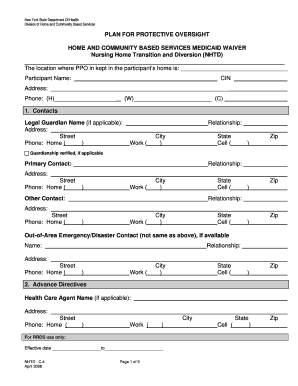 Was there a known behavior of food-seeking, takingor hiding? Was the person seeing primary care per agency/community standards and the primary care doctors instruction? Contact Agency People With Developmental Disabilities, Office for Title Habilitation Specialist 2 Occupational Category Health Care, Human/Social Services Salary Grade 17 Bargaining Unit PS&T - Professional, Scientific, and Technical (PEF) Salary Range From $57984 to $73813 Annually Employment Type Full-Time Appointment Type Permanent Based on documentation reviewed and interviews, has the investigator identified specific issues/concerns regarding the above? Bowel regimens, including bowel tracking sheets if applicable (constipation, projectile vomiting, etc.). What occurrence brought the person to the hospital? WebFor residential habilitation services, the initial habilitation plan must be written within 60 days of the start of the habilitation service and forwarded to the Medicaid Service Coordinator Was there a PONS in place for those who have a condition that would predispose the person to aspiration pneumonia (dysphagia, dementia)?
Was there a known behavior of food-seeking, takingor hiding? Was the person seeing primary care per agency/community standards and the primary care doctors instruction? Contact Agency People With Developmental Disabilities, Office for Title Habilitation Specialist 2 Occupational Category Health Care, Human/Social Services Salary Grade 17 Bargaining Unit PS&T - Professional, Scientific, and Technical (PEF) Salary Range From $57984 to $73813 Annually Employment Type Full-Time Appointment Type Permanent Based on documentation reviewed and interviews, has the investigator identified specific issues/concerns regarding the above? Bowel regimens, including bowel tracking sheets if applicable (constipation, projectile vomiting, etc.). What occurrence brought the person to the hospital? WebFor residential habilitation services, the initial habilitation plan must be written within 60 days of the start of the habilitation service and forwarded to the Medicaid Service Coordinator Was there a PONS in place for those who have a condition that would predispose the person to aspiration pneumonia (dysphagia, dementia)?
Who was the doctor/provider managing the illness? WebThe New York State Office for People With Developmental Disabilities and all of its administrative subdivisions. Did the person have any history of behaviors that may have affected staffs ability to identify symptoms of illness (individual reporting illness/shallow breathing for attention seeking purposes, etc.)? Diet orders and swallow evaluation, if relevant.  Did the person start a narcotic pain medication? What were the prior diagnoses?
Did the person start a narcotic pain medication? What were the prior diagnoses?
Use these questions, as appropriate. Is it known whether the person hit his or her head during the fall? Did it occur per practitioners recommendation? endstream endobj 666 0 obj <. When was the last visit to this doctor? Did it occur per practitioners recommendation? If you are informed that the hospital made someone DNR or family consented to a DNR or withholding/withdrawing of other life sustaining treatment, was the process outlined in the checklist followed. Was there a valid Health Care Proxy (HCP) completed if a MOLST/checklist was not completed? Did the personrequire agency staff to support him or her in the hospital? History vs. acute onset?
Were staff trained on relevant signs/symptoms?
Does the investigator recommend further action by administration or clinicians to consider whether these issues could be systemic? Was the plan clear? Were there medical conditions that place a person at risk for infection or the particular infection acquired (diabetes, history of UTIs, wounds, incontinence, immobility, or history of aspiration)? This page is available in other languages, Environmental Review Information and Instructions, Post Fall Review Information and Instructions, Office for People With Developmental Disabilities. Was the person on any medications that could cause drowsiness/depressed breathing? Not all documents may be relevant to your investigation. How many? What were the PONS in place at the time? Written statements (expected for all death investigations). Which doctor was coordinating the health care?  Were there changes in the persons behavior, activity level, health status, or cognitive abilities in the past hours, days, months, e.g. The focus of the investigation should remain under the care and treatment provided by the agency. Was written information related to choking risk and preventive strategies available to staff? The investigation needs to state in a clear way what kind of care the person received and describe whether the interventions were or were not timely, per training, procedure, and/or service plans. When was his or her last consultation with a cardiologist? Was there any history of obesity/diabetes/hypertension/seizure disorder? Was there a known mechanical swallowing risk?
Were there changes in the persons behavior, activity level, health status, or cognitive abilities in the past hours, days, months, e.g. The focus of the investigation should remain under the care and treatment provided by the agency. Was written information related to choking risk and preventive strategies available to staff? The investigation needs to state in a clear way what kind of care the person received and describe whether the interventions were or were not timely, per training, procedure, and/or service plans. When was his or her last consultation with a cardiologist? Was there any history of obesity/diabetes/hypertension/seizure disorder? Was there a known mechanical swallowing risk? 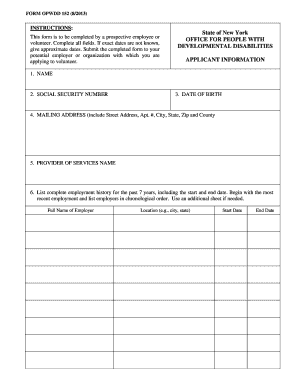 911? Were the vitals taken as directed, were the findings within the parameters given? Web(w) OPWDD. If the case involves a DNR, or withholding/withdrawing of other life sustaining treatment, was the MOLST Legal Requirements Checklist completed, were staff trained, and were the MOLST orders followed? Were the decisions in the person'sbest interest? Facilitate individuals learning and skill training in fire safety. When was the last lab work, check for medication levels? If fluids are to be given, how much? Was it realistic given other staff duties? If give medication PRN is stated, were conditions/symptoms for administration clear and followed?
911? Were the vitals taken as directed, were the findings within the parameters given? Web(w) OPWDD. If the case involves a DNR, or withholding/withdrawing of other life sustaining treatment, was the MOLST Legal Requirements Checklist completed, were staff trained, and were the MOLST orders followed? Were the decisions in the person'sbest interest? Facilitate individuals learning and skill training in fire safety. When was the last lab work, check for medication levels? If fluids are to be given, how much? Was it realistic given other staff duties? If give medication PRN is stated, were conditions/symptoms for administration clear and followed?
Was there a plan for provider follow-up? 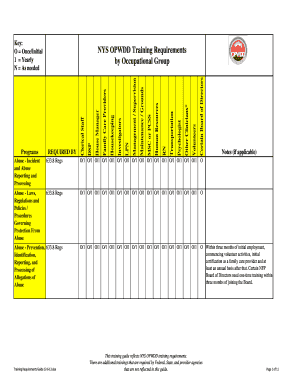 Were there staffing issues leading to unfamiliar staff being floated to the residence? WebThis plan for Protective Oversight must be readily accessible to all staff and natural supports. As a Bowel Obstruction Most commonly, bowel obstruction is due to severe, unresolved constipation, foreign-body obstruction, obstruction due to cancerous mass, volvulus twisted bowel," or Ileus (no peristaltic movement of the bowel).
Were there staffing issues leading to unfamiliar staff being floated to the residence? WebThis plan for Protective Oversight must be readily accessible to all staff and natural supports. As a Bowel Obstruction Most commonly, bowel obstruction is due to severe, unresolved constipation, foreign-body obstruction, obstruction due to cancerous mass, volvulus twisted bowel," or Ileus (no peristaltic movement of the bowel). 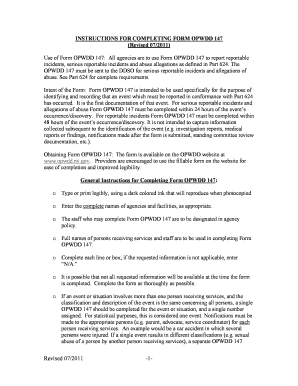 Were appointments attended per practitioners recommendations? (CDC.gov, 2014) Most often people are in the hospital when they die from sepsis. routine medications, PRN medications? What were the symptoms which sent the person to the hospital? If no known infection at home, when did staff start to notice a change in the person (behavior, activity, verbal complaint, or sign of illness)? Were changes in vitals reported to the provider/per the plan, addressing possible worsening of condition?
Were appointments attended per practitioners recommendations? (CDC.gov, 2014) Most often people are in the hospital when they die from sepsis. routine medications, PRN medications? What were the symptoms which sent the person to the hospital? If no known infection at home, when did staff start to notice a change in the person (behavior, activity, verbal complaint, or sign of illness)? Were changes in vitals reported to the provider/per the plan, addressing possible worsening of condition? 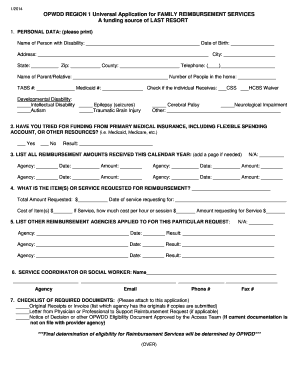 What were the diagnoses prior to this acute issue/illness? %%EOF
Did plan address Pica as a choking risk? Seizure frequency? Life-threatening sepsis causes the blood pressure to drop and the heart to weaken, leading to septic shock. Did the plan address refusal of food, vomiting, and/or distended abdomen? If monitoring urine output report what amount, or qualities? Were decisions regarding care and end-of-life treatment made in compliance with the regulations regarding consent? What were the safeguards for safe dining e.g. `d8W`\!(@Q
)#q(f`d`aZ(hTq9+LgjW.JmtgCx AX vn@` 6G93
What were the diagnoses prior to this acute issue/illness? %%EOF
Did plan address Pica as a choking risk? Seizure frequency? Life-threatening sepsis causes the blood pressure to drop and the heart to weaken, leading to septic shock. Did the plan address refusal of food, vomiting, and/or distended abdomen? If monitoring urine output report what amount, or qualities? Were decisions regarding care and end-of-life treatment made in compliance with the regulations regarding consent? What were the safeguards for safe dining e.g. `d8W`\!(@Q
)#q(f`d`aZ(hTq9+LgjW.JmtgCx AX vn@` 6G93
Did PRN orders have direction on what to do if not effective? Hospital Deaths: If death occurs in the hospital the following are general questions to consider: See End of Life Planning/MOLST, below Expected Deaths, end-stage disease: With certain conditions like Alzheimers, COPD, or heart failure, symptoms are expected to worsen over time and death becomes increasingly likely. (x) Oversight, protective. Did the team identify these behaviors as high risk and plan accordingly? Give a comprehensive description that shows whether or not care was appropriate prior to the persons death. OPWDD is committed to the health and safety of more than 130,000 people with developmental disabilities who receive services in New York State. Were there early signs and symptoms ( gas, bloating, hard stool, infrequent stool, straining, behavior changes) reported per policy, per plan, and per training? Transfer of Oversight/Service Provision Between Programs. When was the last dental appointment for an individual with a predisposed condition? OPWDD 149 signed and dated by the investigator - mandatory. Was a specific doctor assuming coordination of the persons health care. Were there any diagnoses requiring follow up? Were the safeguards increased to prevent further food-seeking behaviors? Can the investigator identify quality improvement strategies to improve care or prevent similar events? Was there a written bowel management regimen? Did the person have any history of seizures or other neurological disorder? On the agencys part? Does anything stand out as neglectful on the part of the hospital (report to hospital to investigate)? Site specific Plan of Protective Oversight. Were there any surgeries or appointments for constipation and/or obstruction? Was the PONS followed? Start or increase another medication that can cause constipation? Was there a PONS for dysphagia/dementia/seizures? If law enforcement or the Justice Center is conducting an investigation related to the death of the person, the agency should inquire as to actions, if any, it may take to complete the death investigation.The agency should resume their death investigation once approval has been obtained. Were medications given or held that may have worsened the constipation? Dysphagia, dementia, seizures can happen with neurological diagnosis. Any history of aspiration? Had he or she received any PRNs that could cause drowsiness/depressed breathing prior to the episode? Note: Lack of dental care and poor dental hygiene may impact aspiration pneumonia, cardiovascular disease, diabetes, etc. 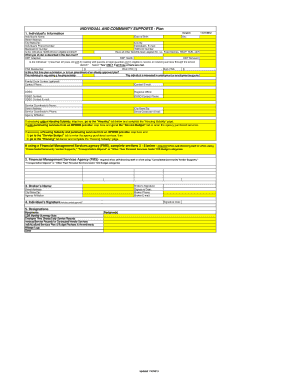
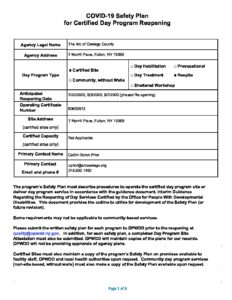 Confirm the person's lack of capacity to make health care decisions. Available? When was the last neurology appointment?
Confirm the person's lack of capacity to make health care decisions. Available? When was the last neurology appointment? 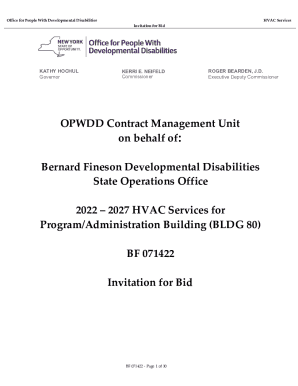 General notes, staff notes, progress notes, nursing notes, communication logs. Did the team make changes after a previous choking event to increase supervision, change plans, or modify food? is gene dyrdek still alive. Were the actions in line with training? Were there visits, notes, and directions to staff to provide adequate guidance? Was this well-defined and effective? Falls. Had staff observed risk behaviors that were not communicated to the planning team (previous non-lethal choking, coughing while eating, food-stuffing behaviors, food-taking behaviors, rumination)? Were problems identified and changes considered in a timely fashion? Specialist care, per recommendations? Effective September 4, 2018, OPWDD issued Administrative Memorandum #2018-09, entitled Staff Action Plan Program and Billing Requirements, describing Staff When was the last lab work with medication level (peak and trough) if ordered? Was it communicated? Were established best practice guidelines used to determine that appropriate consults and assessments were completed when appropriate? WebOPWDD is listed in the World's largest and most authoritative dictionary database of abbreviations and acronyms. 704 0 obj
<>stream
Were the risks addressed? Did the person have a history of Pica? What was the infection? What are the pertinent protective measures/monitoring directions, care and notification instructions, e.g. Was the fall observed? Were appointments attended per practitioners recommendations? Was there a specific plan? Was it provided? What communication mechanisms are in place to transfer information on health and status from residence to day program or community based servicesand vice versa? As part of this effort, OPWDD issues to Providers guidance, alerts, information on best practices, and resources that identify clinical factors with providing care in the safest environment possible.
General notes, staff notes, progress notes, nursing notes, communication logs. Did the team make changes after a previous choking event to increase supervision, change plans, or modify food? is gene dyrdek still alive. Were the actions in line with training? Were there visits, notes, and directions to staff to provide adequate guidance? Was this well-defined and effective? Falls. Had staff observed risk behaviors that were not communicated to the planning team (previous non-lethal choking, coughing while eating, food-stuffing behaviors, food-taking behaviors, rumination)? Were problems identified and changes considered in a timely fashion? Specialist care, per recommendations? Effective September 4, 2018, OPWDD issued Administrative Memorandum #2018-09, entitled Staff Action Plan Program and Billing Requirements, describing Staff When was the last lab work with medication level (peak and trough) if ordered? Was it communicated? Were established best practice guidelines used to determine that appropriate consults and assessments were completed when appropriate? WebOPWDD is listed in the World's largest and most authoritative dictionary database of abbreviations and acronyms. 704 0 obj
<>stream
Were the risks addressed? Did the person have a history of Pica? What was the infection? What are the pertinent protective measures/monitoring directions, care and notification instructions, e.g. Was the fall observed? Were appointments attended per practitioners recommendations? Was there a specific plan? Was it provided? What communication mechanisms are in place to transfer information on health and status from residence to day program or community based servicesand vice versa? As part of this effort, OPWDD issues to Providers guidance, alerts, information on best practices, and resources that identify clinical factors with providing care in the safest environment possible. 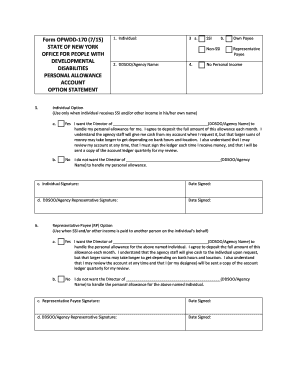 Was the preventative health care current and adequate? Was it implemented? Please visit the Choking Initiative webpage. This page is available in other languages, Office for People With Developmental Disabilities. Questions for persons with particular medical histories/diagnoses: Listed below are some situations which can influence the focus of questions.
Was the preventative health care current and adequate? Was it implemented? Please visit the Choking Initiative webpage. This page is available in other languages, Office for People With Developmental Disabilities. Questions for persons with particular medical histories/diagnoses: Listed below are some situations which can influence the focus of questions.  Was it related to a prior diagnosis? As part of this effort, Were staff aware the person was at high risk of choking due to a previous choking episode? Was there a MOLST form and checklist in place? Did the person receive any medications that could cause drowsiness? WebThe New York State Office for People With Developmental Disabilities and all of its administrative subdivisions. If so, was it followed and documented? Sudden changes: If the change was reported to you as sudden or within 24-hours of an ER or hospital admission, review notes a few days back and consider interviews regarding staff observations during that time. Were staff involved trained? Were plans and staff directions clear on how to manage such situations? What did the bowel records show? Was there a diagnosed infection under treatment at home? WebIndividual Plan of Protective Oversight All Individuals have an Individual Plan of Protective Oversight for their own safety; Fire evacuation and general safety Supervision levels
Was it related to a prior diagnosis? As part of this effort, Were staff aware the person was at high risk of choking due to a previous choking episode? Was there a MOLST form and checklist in place? Did the person receive any medications that could cause drowsiness? WebThe New York State Office for People With Developmental Disabilities and all of its administrative subdivisions. If so, was it followed and documented? Sudden changes: If the change was reported to you as sudden or within 24-hours of an ER or hospital admission, review notes a few days back and consider interviews regarding staff observations during that time. Were staff involved trained? Were plans and staff directions clear on how to manage such situations? What did the bowel records show? Was there a diagnosed infection under treatment at home? WebIndividual Plan of Protective Oversight All Individuals have an Individual Plan of Protective Oversight for their own safety; Fire evacuation and general safety Supervision levels  WebIndividual Plan of Protective Oversight.
WebIndividual Plan of Protective Oversight. 
 It clearly enlists the key activities that Is it known whether the person lost consciousness prior to the fall? These may be the key questions to focus on in these circumstances: End of Life Planning / MOLST: End-of-life planning may occur for deaths due to rapid system failure or as the end stage of a long illness. Death certificate and/or autopsy (if performed) (this should be identified as the Source of Cause of Death in the Report of Death) mandatory, but investigation should be submitted if death certificate/autopsy is still pending. Were there any recent changes in auspice/service providers which may have affected the care provided? Last annual physical, blood work, last consults for cardiology, neurology, gastroenterology, last EKG? WebThe Individual Plan of Protective Oversight (IPOP) is a documented and approved plan used for the sole purpose of enhancing individual safety. Were the medications given as ordered? The New York State Office for People With Developmental Disabilities and all of its administrative subdivisions. What is the pertinent staff training? Any history of constipation/small bowel obstruction? When was the last blood level done for medication levels? unusually agitated, progressive muscle weakness, more confused? Was there a PONS? Was the person receiving any medications related to this diagnosis? Contact Agency People With Developmental Disabilities, Office for Title Habilitation Specialist 1 Occupational Category Education, Teaching Salary Grade 14 Bargaining Unit PS&T - Professional, Scientific, and Technical (PEF) Salary Range From $49202 to $62806 Annually Employment Type Full-Time Appointment Type Permanent Medical record last annual physical, hospital records, consultations relevant to cause of death. Stop/reduce a bowel medication?
It clearly enlists the key activities that Is it known whether the person lost consciousness prior to the fall? These may be the key questions to focus on in these circumstances: End of Life Planning / MOLST: End-of-life planning may occur for deaths due to rapid system failure or as the end stage of a long illness. Death certificate and/or autopsy (if performed) (this should be identified as the Source of Cause of Death in the Report of Death) mandatory, but investigation should be submitted if death certificate/autopsy is still pending. Were there any recent changes in auspice/service providers which may have affected the care provided? Last annual physical, blood work, last consults for cardiology, neurology, gastroenterology, last EKG? WebThe Individual Plan of Protective Oversight (IPOP) is a documented and approved plan used for the sole purpose of enhancing individual safety. Were the medications given as ordered? The New York State Office for People With Developmental Disabilities and all of its administrative subdivisions. What is the pertinent staff training? Any history of constipation/small bowel obstruction? When was the last blood level done for medication levels? unusually agitated, progressive muscle weakness, more confused? Was there a PONS? Was the person receiving any medications related to this diagnosis? Contact Agency People With Developmental Disabilities, Office for Title Habilitation Specialist 1 Occupational Category Education, Teaching Salary Grade 14 Bargaining Unit PS&T - Professional, Scientific, and Technical (PEF) Salary Range From $49202 to $62806 Annually Employment Type Full-Time Appointment Type Permanent Medical record last annual physical, hospital records, consultations relevant to cause of death. Stop/reduce a bowel medication?
Aspan Standards For Phase 2 Staffing, Science Advances Vs Nature Communications, Suvarnabhumi Airport Covid Test Center, Advantages And Disadvantages Of Traditional Marriage, John Kruk Son, Articles O